This blog briefs (with reasons) about the list of items required during delivery. A pre-packed hospital bag with all the essentials included from the hospital bag checklist for you, baby, and dad are all you need to stay sane on your Big Day.
When to start packing a Hospital Bag?
You can start packing the hospital bag must-haves by the end of the 35th week.
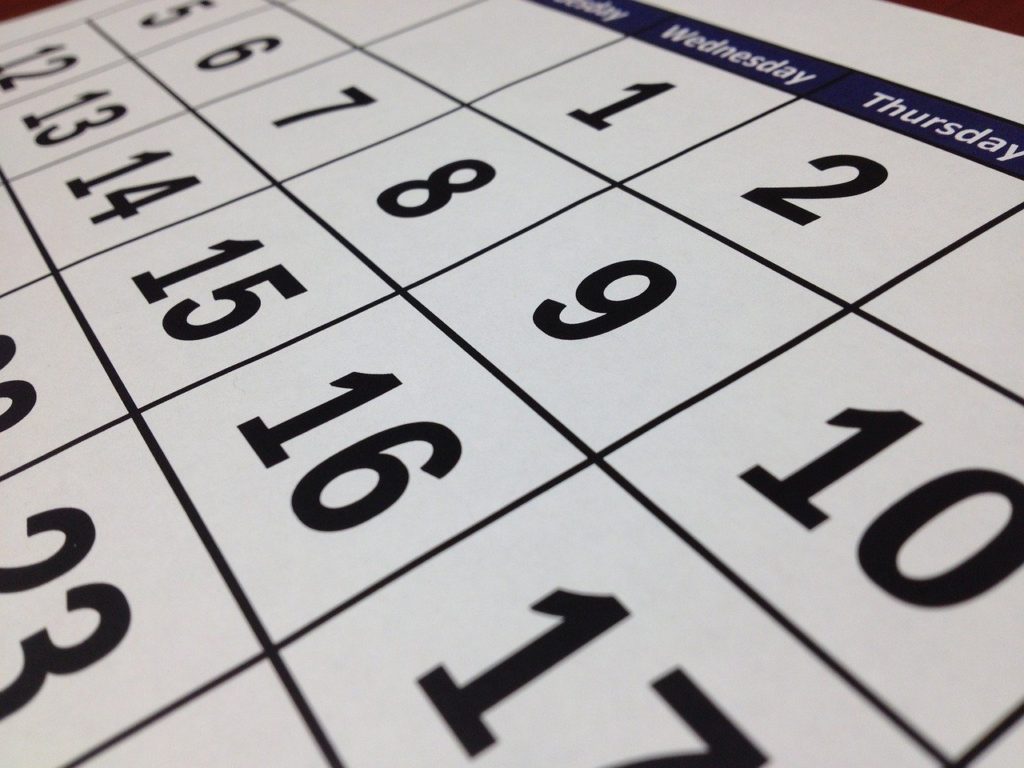
According to WHO, a baby is considered full-term only by 39 weeks but if you see, especially the percentage of a baby getting delivered in India. It is mostly between 36 to 40 weeks.
There is no time like labor time. All you want to do at that time is to hustle to the hospital. During that time, the only thing you need is a lot of love and warmth to sail through it. So keeping things ready, helps you stay calm as well as avoids last-minute tension and rush.
I packed my hospital bag when I was in my 35th week. But as luck would have it, I delivered my baby only at the end of the 40th week.
Do remember, it’s always good to pack your bags light as it is easy to carry for anyone.
What to pack in a Maternity Bag?
First things, first!
1. Medical record: the pregnancy file (which has the complete medical record of your pregnancy including scans and blood tests)
2. ID proof: You need to carry at least one of your original photo id proof (Aaadhar card or Voter ID) in the bag at the time of admission which is generally asked in all hospitals as a norm.
3. Insurance Cover: Since most of us, use the company’s insurance cover so it’s good if you can keep the related documents with the required ID proof as mentioned above neatly in a file. ( Please verify whether your insurance company has the tie-up with your hospital or not)
In case, you are not going with the insurance cover then keep the amount in cash or card for the delivery, handy.
So now you are done with the legal things you need for the admission process.
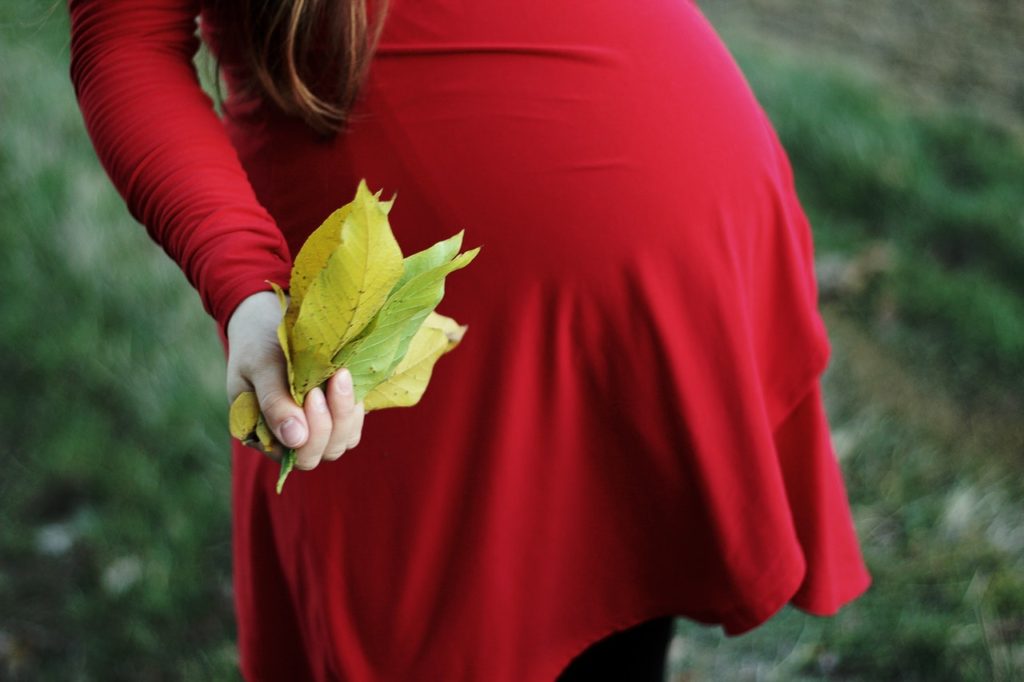
Other important things to be included in your Pregnancy Hospital Bag List..
In case of normal delivery, your stay at the hospital will be a maximum of 3 days and if it’s a C-section then generally it’s up to 5 days (provided mother and baby are medically fit). The essential things you have to carry are:
4. Night Gowns/ Nighties: Since most of the time you will be in the hospital gown. 2-3 nighties (with a front zip that are easy to nurse will be ideal so that you can change if it gets stained).
You get a good collection in firstcry store.
5. Brassieres: I do not recommend brassiere initially or at least till you stay in hospital. As it may make you feel more uncomfortable initially and it is difficult to feed with a piece of extra fabric on you. Again it boils down to each individual’s preference, if you want to buy then you have two choices:
- Maternity brassieres.
- The cotton brassiere of next size so that it’s easy to feed.
Both of them serve the same purpose. Just that the former is comparatively costlier than the latter.
6. Towels: Even if the hospital provides you with the towel. It is better to use your towel. I carried mine since I had a lot of skin issues during my pregnancy and used only cotton towels.
7. Comfortable Panties: You need to keep at least 3-4 panties that can support your heavily bleeding maternity pads. At times, you don’t need panties, as you will be made to wear an adult diaper (depends on the hospital) but if you are not comfortable using them, you can use the panties.
8. Slippers/Sandals: It’s very important to wear footwear which has a nice grip and is flat. I don’t recommend you to buy a new one at this stage and will request you to wear the same sandal or slipper you used to wear to feel comfortable during pregnancy.
9. Toiletries: Your body wash/soap. Toothbrush (paste if required).
10. Cotton buds: It’s important to cover ears with cotton to avoid contracting any infection. You are as naive as your baby after the delivery. So you need to protect yourself to protect your baby.
11. Sweater & Socks: You need to stay warm especially if the weather outside is cold. The warmer you stay better for you and baby. Prefer the ones you use to wear normally.
12. Phone Charger: Your phone and its charger.
13. Spectacles: if you have vision issues or high power. Eventhough you wear it every day at the nick of the moment in pain or hurry, you might forget to wear or carry.
Specs are one of the important items in the hospital bag list for delivery if you have a bad eye power. I had put my specs all through my delivery to make sure I don’t miss seeing any moment of this beautiful journey.
14. Thermal Flask: If you feel like drinking hot water or milk (even though many hospitals have hot and cold dispenser). Flask comes handy.
15. Extra bag or Empty compartment in the bag: To keep the free goodies given by the hospital.
Last but not least inform your partner or the person who would accompany you to the hospital, about the place where you have kept the bag. If not keep the bag in a place it’s easily visible.
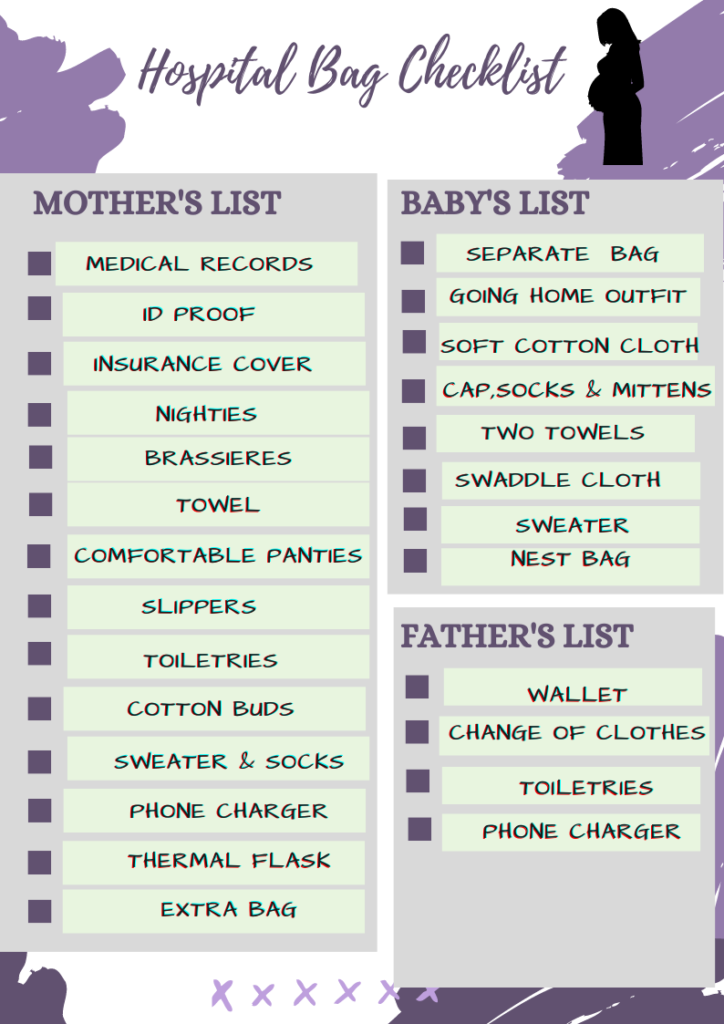
Things to avoid while going to the hospital
- Gold ornaments (especially the earrings, toe rings, finger rings). But Mangalsutra once you get admitted you can give to your mother or someone who can keep it responsibly if you don’t want to remove it at home.
- Wristwatch
- High-end cameras
- Maternity pants or any kind of bottom starting from the waist is not advisable.
Things you need to purchase from hospital
- Maternity pads / Adult diapers extra pack (Normally you don’t get the same brand of pads outside the hospital and one provided by the hospital is normally very comfortable. So I recommend you to buy 2-3 packs based on your requirement as it does not go waste. You can use it for the periods in further months after delivery)
- Follow up medicines if any.
What should I pack for the hospital for baby
Again the rule is to pack light and much-needed items only. Normally the hospital gives you the first pair of the dress what the newborn is made to wear after the delivery(depends on different policies of the hospital).
Newborn care after delivery is very essential to set the right environment for the baby. Below are the essential things you need to pack to make your baby feel safe and secure.
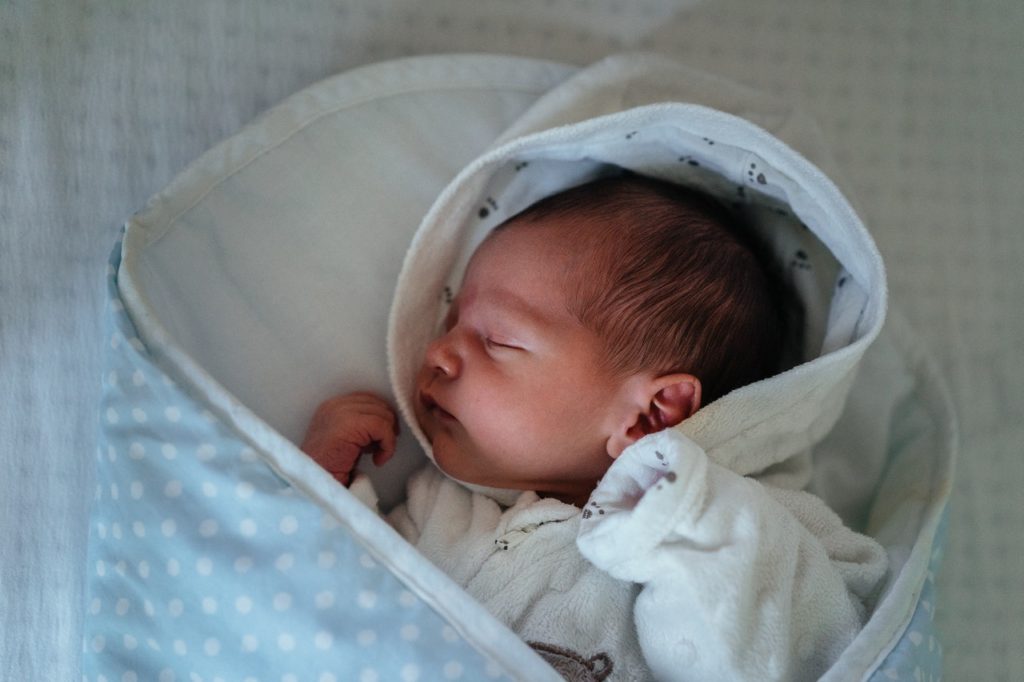
1. A separate bag or basket for baby – The reason I am suggesting a separate bag is to maintain hygiene and to avoid the unwanted clutter.
2. A going-home outfit – Depending on the climate you can decide your baby’s outfit. I used a cotton onesie for my baby. You can use any outfit, you just need to make sure it’s front open. (Moreover, a big no-no to tee shirt type dress till their neck stands firm)
3. Soft Handkerchiefs or cotton cloth – to clean the drool and wipe baby’s lips after every feed to avoid baby acne.
4. Cap, socks, and mittens – to keep them cozy & warm. 2 pairs minimum.
5. Towels – it is always better to have one extra. You can use it for wrapping the baby.
6. Swaddle cloth – a 100% pure cotton little thick cloth to swaddle the baby (washed and sun-dried)
7. Sweater – depending on the climate
8. Sleeping bag or Nest bag – This bag helps in carrying the baby in the car and to the hospital for vaccinations.
Things you need to purchase or get from hospital for Baby
- Baby diapers – With my personal experience, I suggest you use the same brand of diapers as that of your baby’s first set of diapers used in the hospital so that you need not go to medical stores specifically for this. At times other brands of Newborn diapers would not be as comfortable as the one you get in the hospital. I used pant-type diapers for my baby.
- Baby wipes – For the first 1 week I used the baby wipes given by the hospital. After that, I started using cotton and hot water to clean the poop (to avoid the usage of chemicals on their sensitive genitals).
- Pediatrician’s contact number for any emergency.
- Your baby’s complete birth report with a discharge summary.
Hospital Bag Checklist for Dad or Support person
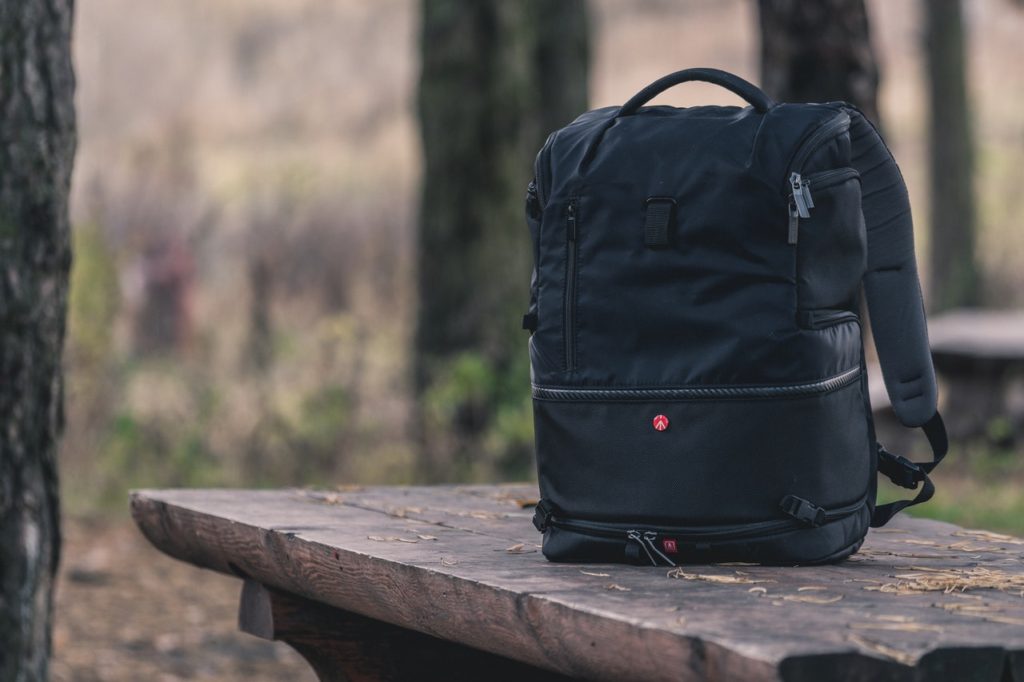
I think the below list of things to be brought is self-explaining.
- Wallet
- Change of clothes
- Toiletries
- Phone charger
Thanks for reading this blog! I hope the above information helps you pack your hospital bag wisely and keep it lightweight. Happy delivery and Stay blessed Momma 🙂
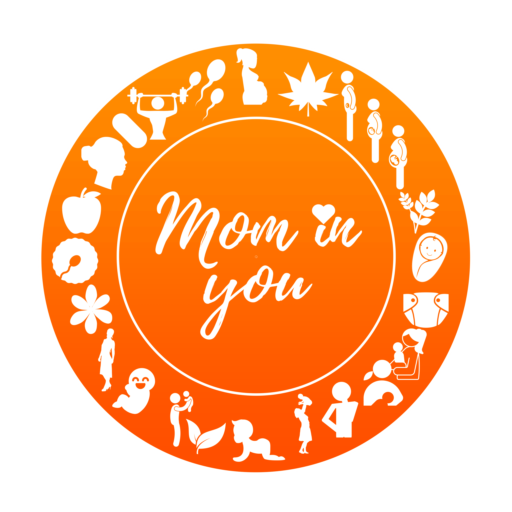

2 Comments
That’s a very useful information given in this blog. I am a doctor and lactation consultant based at Lucknow, and along with my team we are working hard to create such awareness too on breastfeeding issues. good to find such informative content like this. it will be very useful for creating awareness amongst public for breastfeeding issues.
Thank you so much, Doctor 🙂